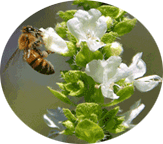Western Versus Eastern Medicine
"Simply stated, Western philosophy isolates and forces therapeutic actions to take place in the body. Eastern philosophy depends upon whole-food formulas to nourish the body’s ability to legislate needed actions."
The following information represents the differing approaches to historical philosophies of Eastern and Western health practices. This information was taken from the Neways Inc. article on New Science.
If using natural health measures is a viable alternative, why are these methods not taught and encouraged by all medical doctors? Why is there so much controversy about the use of herbs and Eastern/Oriental disease prevention measures? A look to the history of medicine helps to answer these questions.
Western Medical Science
Western medical science is a wonderful approach of cures and treatments that stop illnesses in the human body. This science can trace its roots back to ancient Greek and Egyptian physicians, but its base approach began to take shape in the 19th century.
The World War II era marked the beginning of the significant development of synthetic drugs. Family doctors began to identify and treat illnesses with new diagnostic instruments, and science began to understand the problems of certain infections and diseases.
Using substances found in plants, chemicals were isolated, extracted, refined, measured, and administered to the human body in controlled dosages. This approach to curing illness was based on the discovery that certain actions could be forced and manipulated in the human body with the use of these controlled substances.
Many of these forced actions were lifesaving and could actually stop disease. This was an exciting time for Western doctors who became well schooled in the administration of such drugs and substances. No other science can do more to save lives and administer crisis treatment.
Eastern Medical Science
Eastern civilizations took another approach, focusing on preventive health measure and natural healing. This science began over 5,000 years ago when ancient herbologists began to experiment with substances in plants and vegetables that affect the human body and bring it to a "perfect state."
They discovered that the effective substances in many plants would enhance health, beauty, clarity of thought and the energies of the body. For centuries they nurtured these valuable plants for the richest herbal, vitamin and mineral content and developed the most effective hybrids.
They developed their science further as the emperors and royal subjects learned to mix certain herbs together in formulations that improved effectiveness.
The Major Difference
Western science focuses on extracting and controlling the active ingredients in plants and converting them to drug substances to halt disease.
Eastern science focuses on giving plant ingredients to the body, still coupled with their natural, organic carriers, so the body can do the extracting and regulating. Their studies show that the human body recognizes them as whole foods and thereby extracts only what it needs.
In the Western philosophy, the extracting is done in a laboratory, bypassing the body’s participation. The body often reacts to these synthetics and isolated chemicals by manifesting side-effects.
Simply stated,
- Western philosophy isolates and forces therapeutic actions to take place in the body.
- Eastern philosophy depends upon whole-food formulas to nourish the body’s ability to legislate needed actions.
Good Medicine and Good Prevention
When the body is in a crisis mode and is incapable of taking actions to overcome disease, the Western approach can be lifesaving and is clearly the best alternative.
When the desire is to prevent such degeneration, nutritionally support the healthy maintenance of systems within the body, enhance regeneration, and simply strive to prevent illness or maintain health, the Eastern science has much to offer.
